The 'slow living' li(f)e
Slow living has never been more popular on social media. But the offline reality for some is hardly an endless summer of rest, sea and beautiful Italian sunsets
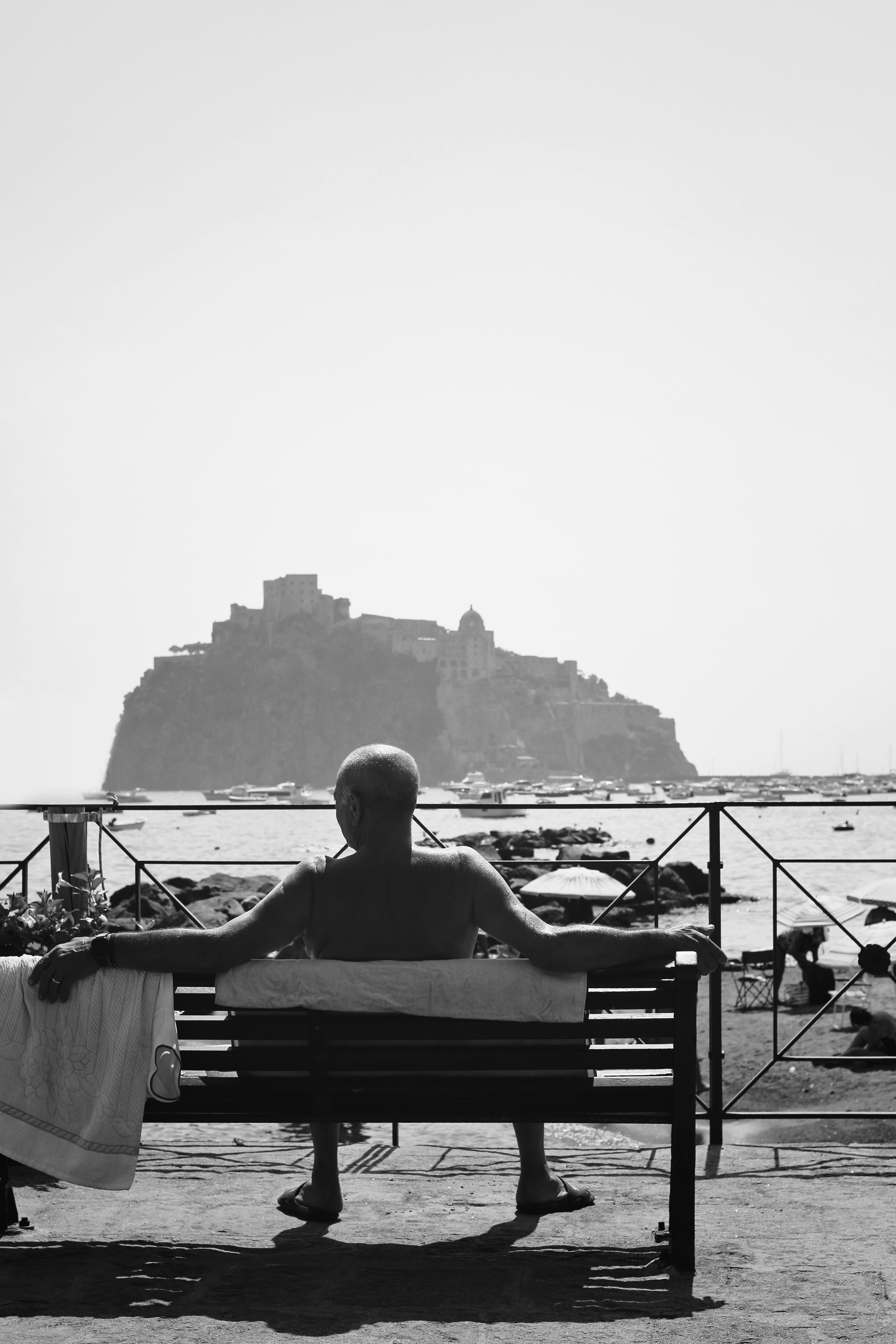
Serena Lacovara took everything she had – her yellow car, clothes, hopes and dreams – to head south, to the same place her mother left when she was 25: Basilicata, the Italian region right above the tip of the boot, blessed with ancient sites, a lunar landscape and charming scenery.
At the age of 23, she realised that the time had come: to leave Nuremberg, the German city where she was born and raised, and start a quieter, slower life.
“I had thought about moving to southern Italy for years, but I always put it off. In 2019, I finally decided to go: I didn’t listen to anyone – I just left,” says the 28-year-old.
“At the time, I could only see the beautiful side of Italy – the sea, the sun, the chatty nights at the bar – and the ugly side of Germany. It’s always so cold here, and people are not as friendly as in Italy. I thought ‘I don’t like this place’, so I told myself I had to try.”
Serena’s not the only one.
In the last three years ‘slow living’ – a lifestyle trend associated with simplicity, escapism, self-care – has become one of the fastest-growing online trends of our time.
The #slowliving content that users consume, produce and share shows an idyllic rural existence of gardening, baking, wandering the streets of small country towns with the sole purpose of reconnecting with the pace of the seasons and rediscovering one's inner life.
The antidote to corporate burnout and hectic, soulless city life.
The fascination with living a more authentic, intentional and conscious lifestyle at a leisurely pace began to emerge in our online culture as a side effect of the Covid-19 pandemic but, contrary to what many expected, it didn’t stop with the return to normality.
Data from Google Trends show that between 2019 and 2023 search queries related to both ‘slow living’ and ‘slow life’ increased exponentially. User interest peaked at the beginning of 2024, reaching the maximum search interest value of 100 – a 63% increase compared to the same period in the previous year.
On social media, the #slowliving hashtag is still at the height of its popularity, with over 6 million posts on Instagram and hundreds of thousands of TikTok videos advertising a simplified, nature-inspired lifestyle.
Clearly a slow-burner trend.
Italians have created their own – on social media, it’s called vita lenta, a ‘quiet place on the internet’ with more than 600,000 Instagram followers and a popular merchandising.
So forget the cottage life, baking bread and growing your own vegetables: the Italian slow living – la vita lenta – is an endless summer, a life in retirement. It’s all about sheets hanging in the street of a picturesque village, sunbathing on a boat, playing cards with friends at the bar… and watching the sunset in a villa overlooking Mount Vesuvius.
But not for everyone.
In the inland and coastal areas of the South, young adults have to face the many challenges of small-town life: unemployment, depopulation, lack of opportunities and social interaction, the collapse of public services and infrastructure.
Being stuck in this spiralling isolation affects the daily life of many people.
People like Tracy Grieco.
“These people on the internet wouldn’t last a day here”
“I work every day in the summer and only have a day off every fortnight – hardly a slow life for me!” she says.
Tracy, 30, works as a kitchen assistant in a farmhouse outside Pisticci, a picturesque coastal village in Basilicata, that was once the heart of the ancient Greek settlement in southern Italy.
When she is not at work, Tracy is busy raising her eight-year-old daughter Gloria alone. There is no time for leisure in her life, she can’t afford to slow down.
“There are times when I think I can’t take it anymore and I have to try harder. But sometimes I am also hopeful, I tell myself ‘Things will change, hang in there’,” says the 30-year-old mum-of-one.
“There is a real lack of social interaction here. There are no spaces for dialogue, for meaningful discussions. No spaces where people can meet to spend some quality time together. Even cultivating children's passions is difficult: sometimes you feel so tired because of the shitty life you lead and, as a parent, that makes you feel guilty.
“These people on the internet wouldn’t last a day here.”
As she speaks, her eyes move restlessly around the room and eventually settle on her daughter who is busy doing her English homework – ‘an apple, a house, a euro’ she repeats.
She says: “I was born here, and I know I’ll die here, but as a parent, I want to create an alternative for her and not just push her to the big city – I want her to have a choice.”
Italian National Institute of Statistics (ISTAT) figures show that Basilicata is the region with the highest rates of population loss (-7.4%) and internal migration (-6.2%). According to ISTAT projections, the region will lose almost 50,000 residents within the next decade.
The death rate (12.3%) far exceeds the birth rate (5.8%), meaning that twice as many people die as are born.
But the depopulation of the region has also damaged the local socio-economic fabric, and caused the destruction of cultural institutions: classrooms are shrinking, universities are emptying, hospitals departments are being transferred to the two regional provinces, banks are closing down.
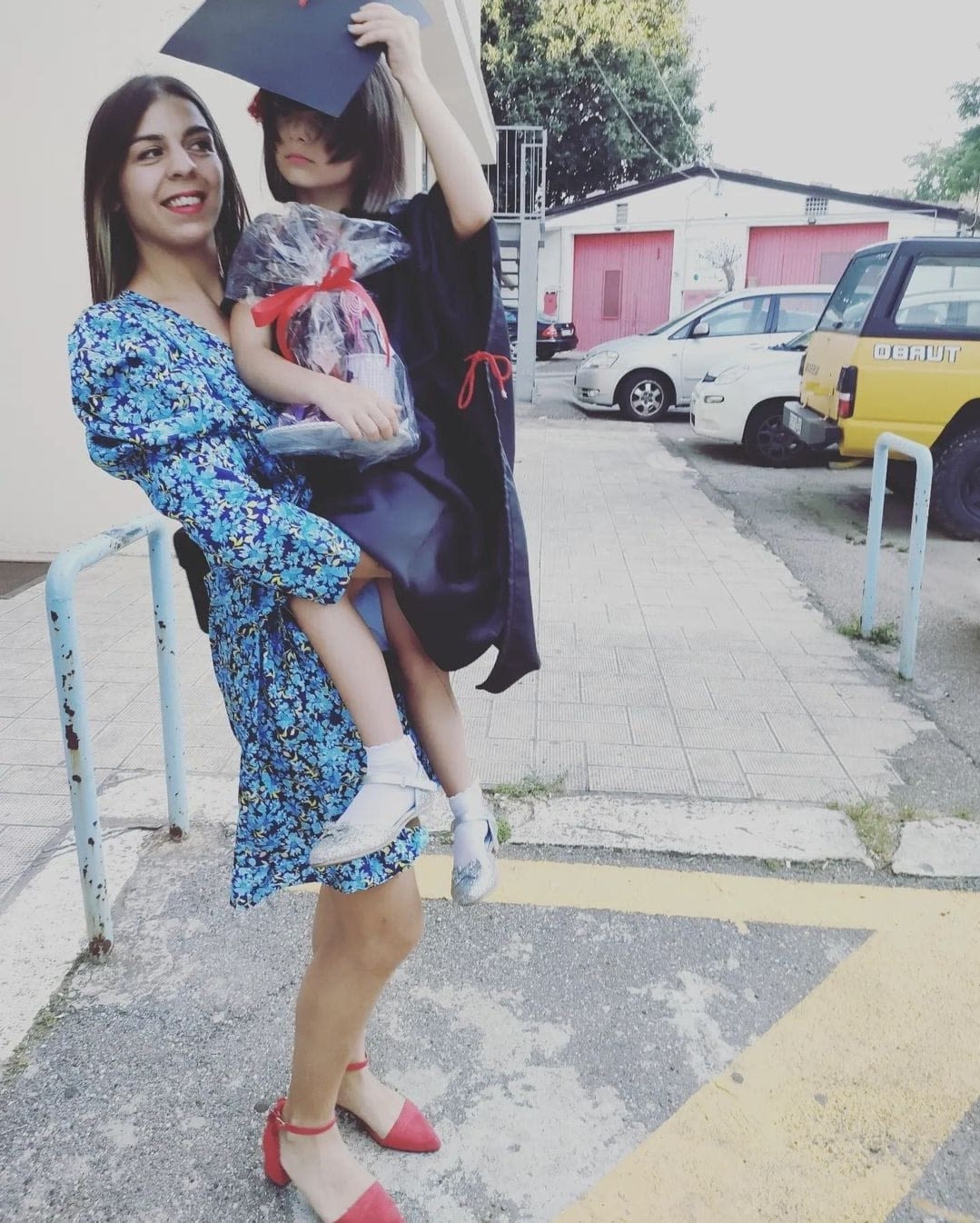
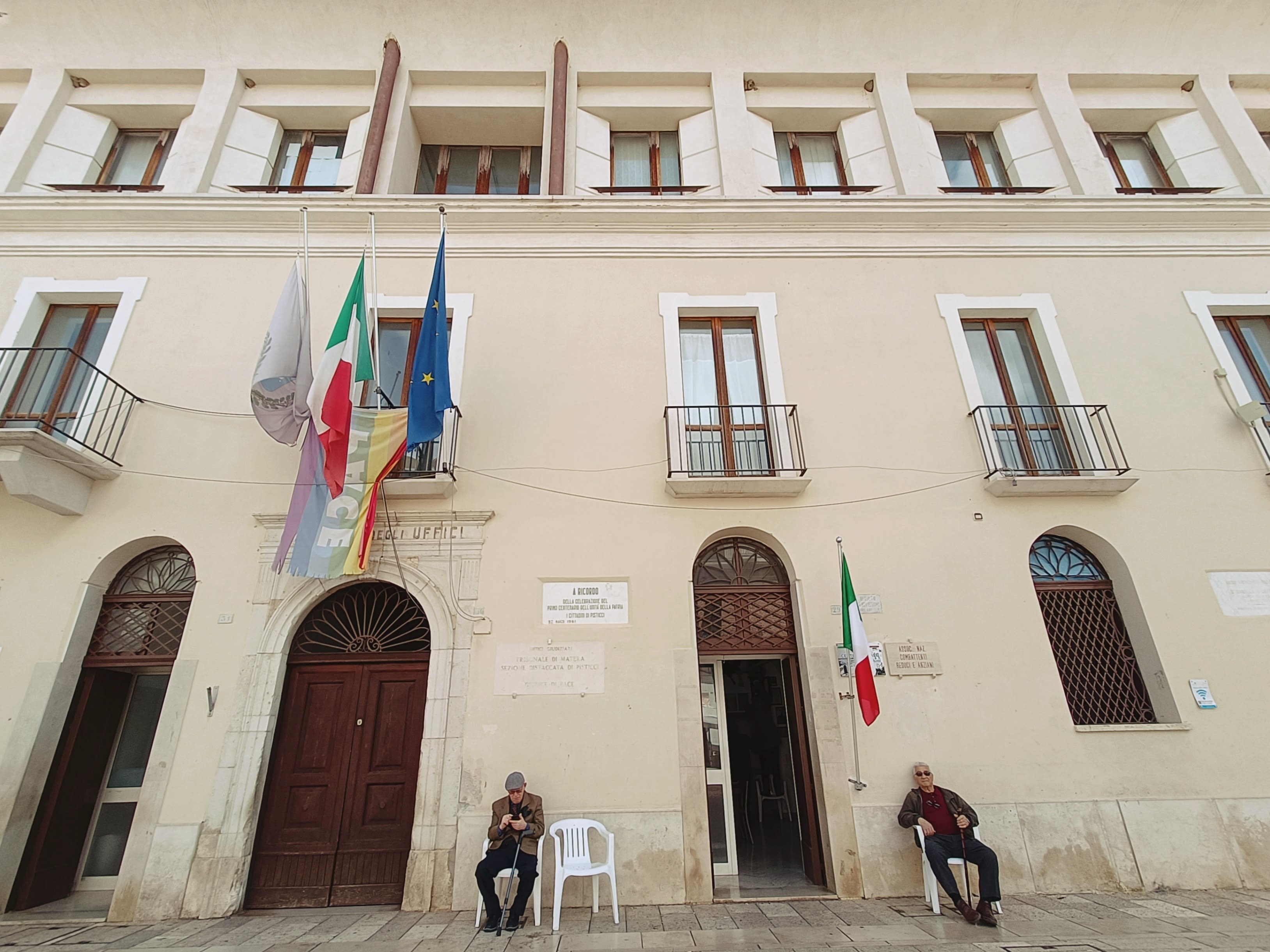
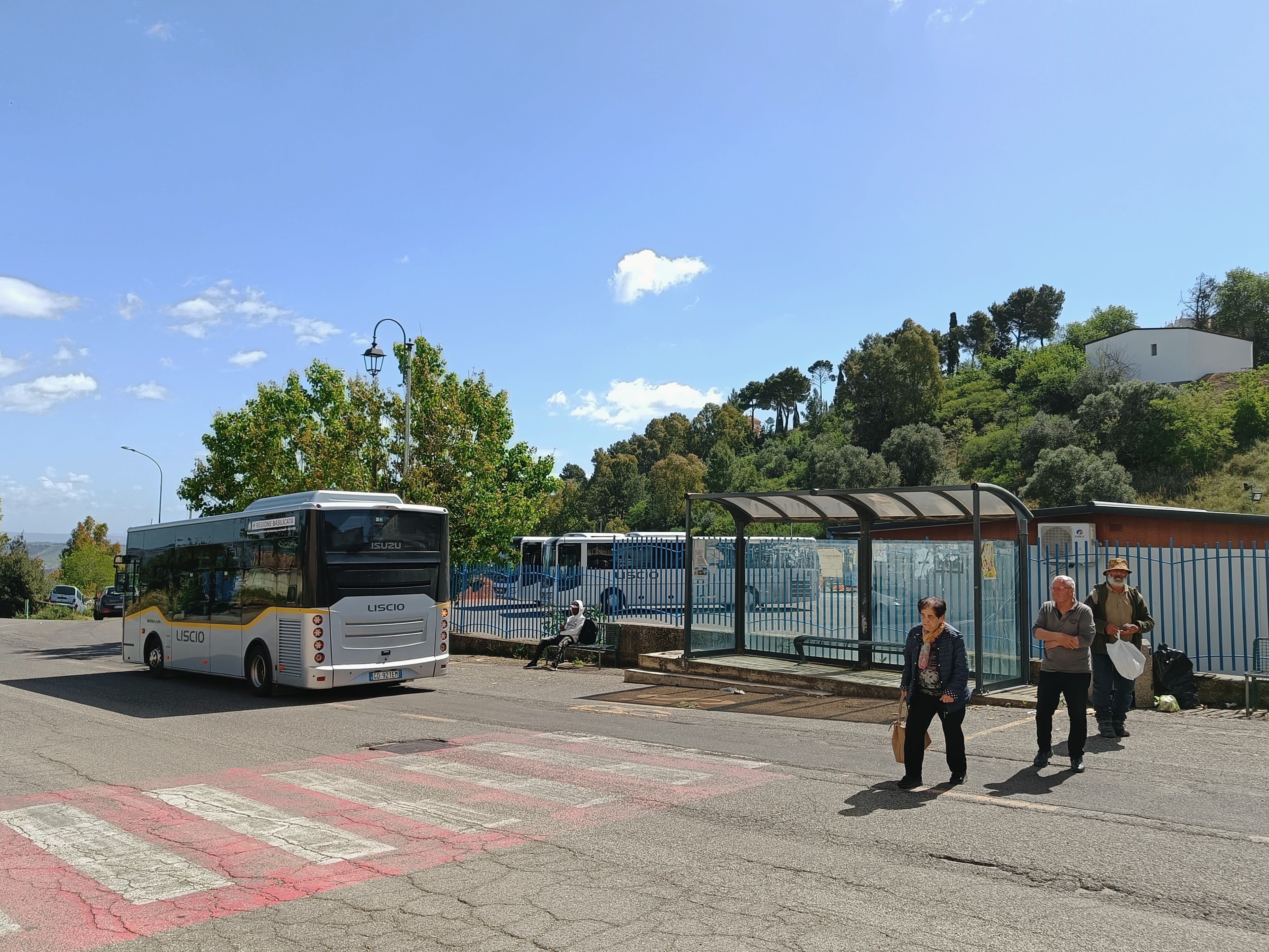
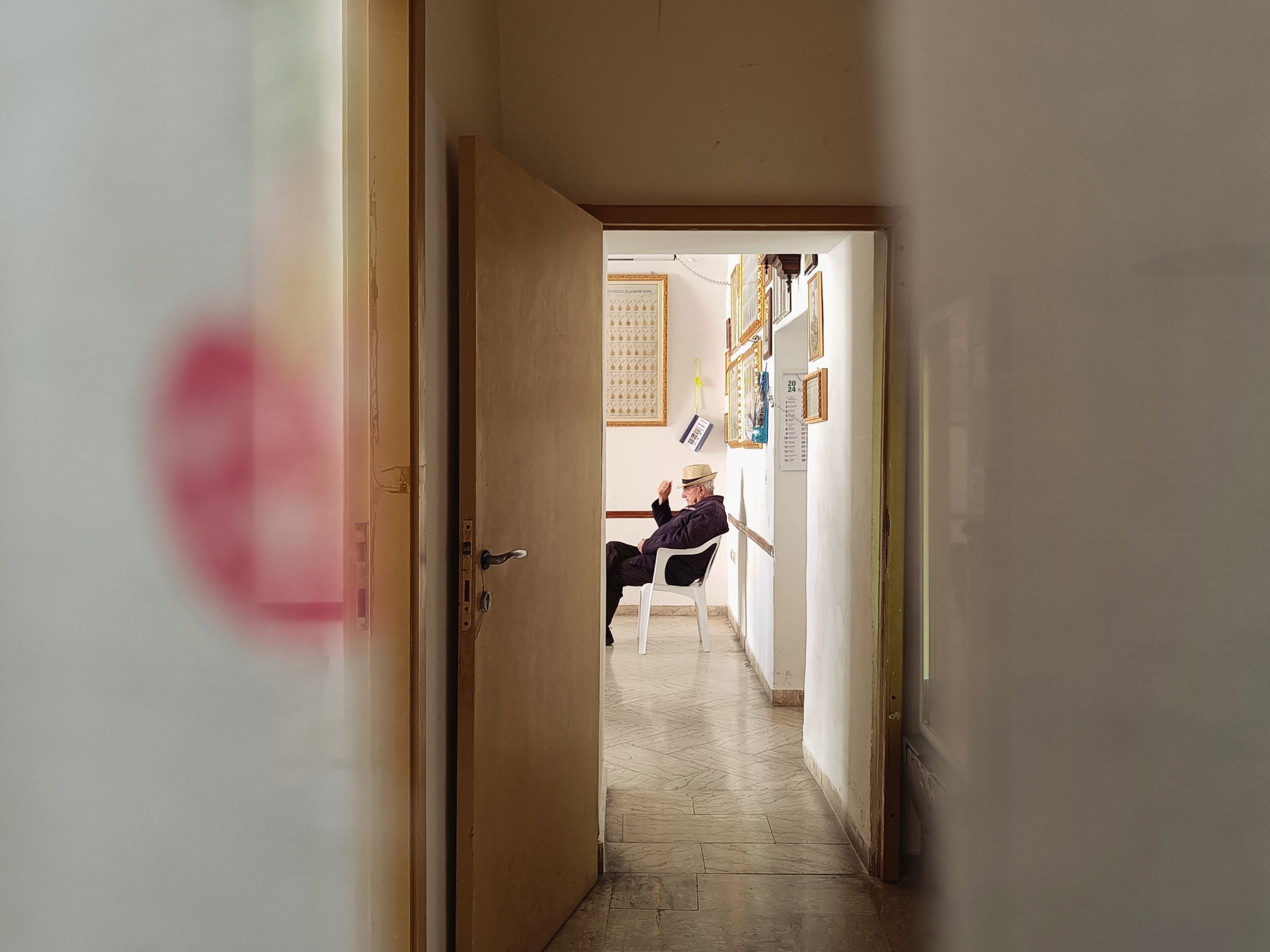
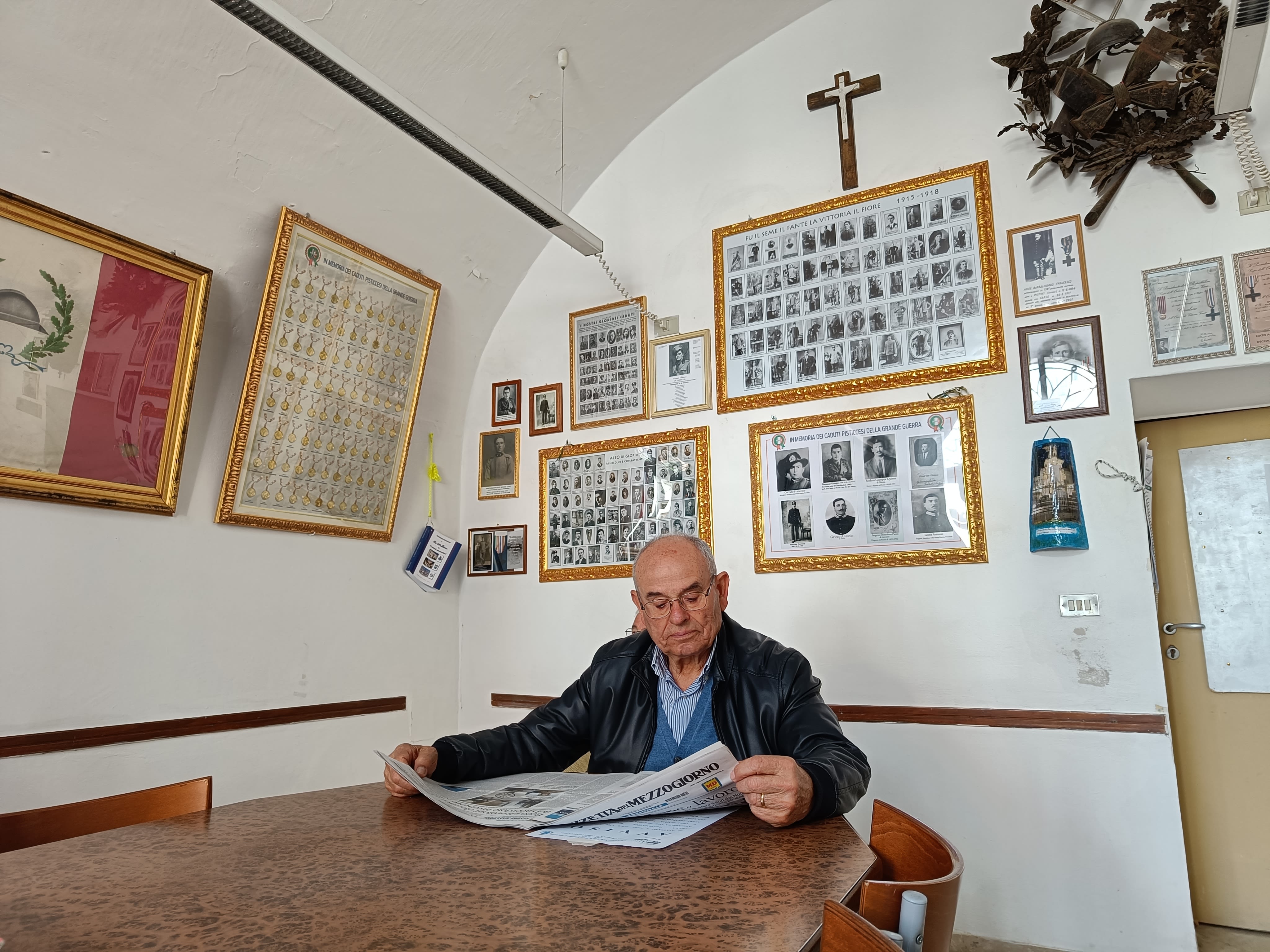
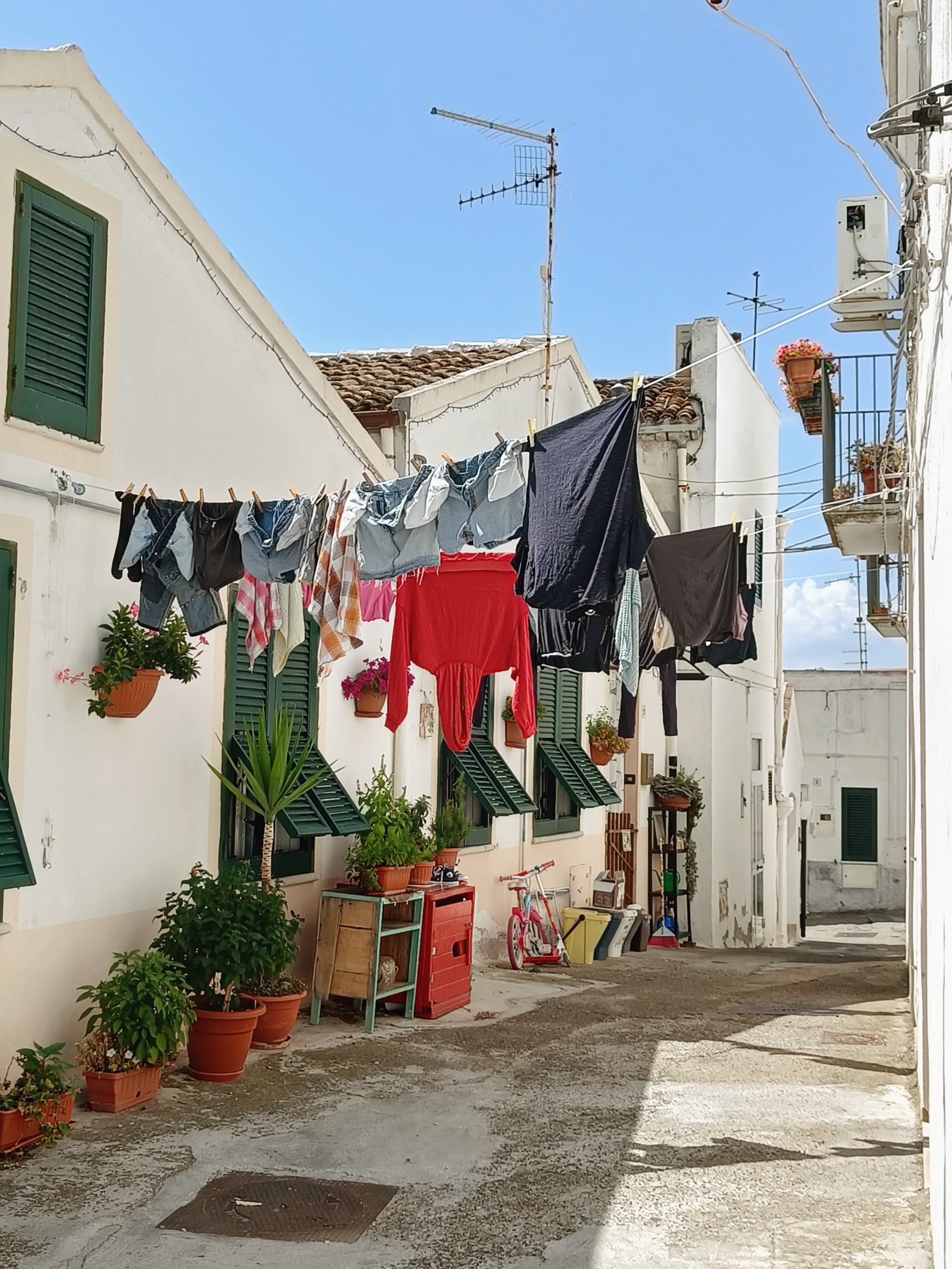
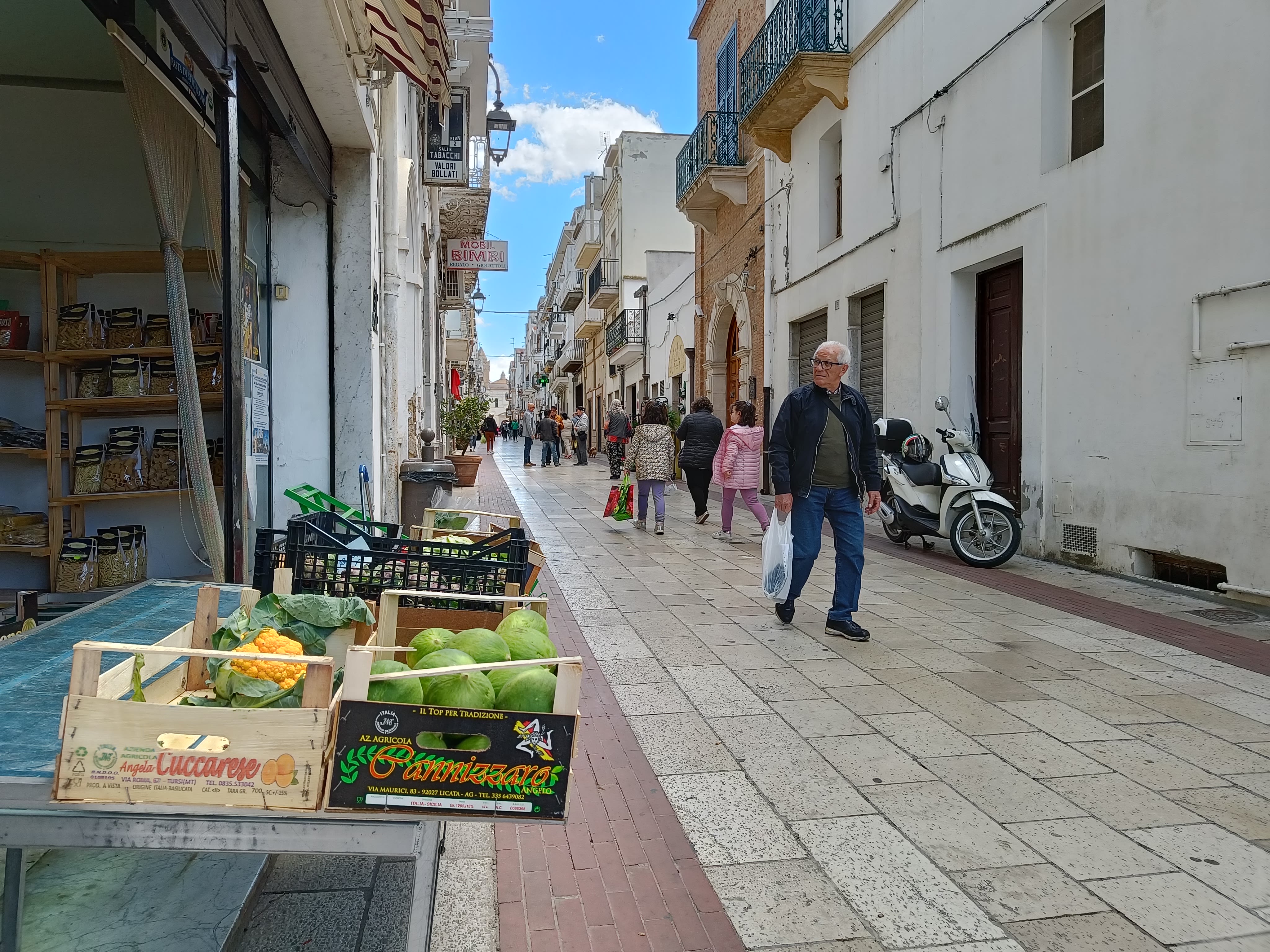
“Loafing around like a bourgeois? That’s not how we live”
If for online users slow living is a conscious lifestyle choice, for real people in the real world it’s not even an option.
“Loafing around like a bourgeois? That’s not how we live,” says Fabrizio Lopatriello.
The 30-year-old works six months a year in an industrial laundry on the outskirts of Pisticci. It’s the only job he could find, despite having sent hundreds of CVs over the years.
A couple of years ago, a friend of a friend found him a job in Germany but he had to turn it down. His elderly parents have no one else but him, leaving was never an option.
According to ISTAT figures, in 2023 the unemployment rate in the 25-34 age group was 19.8% in the South compared to 5.4% in the North. In the same year, the number of economically inactive people aged between 25-34 in the South (793,000) constituted 53% of the national total (1.47 million).
“Whoever thinks that people’s life here is a perpetual summer, that everything runs smoothly, is mistaken... all that glitters is not gold,” he says. “But this is not only the result of bad politics – people here have always settled for less. We make do with the little we have, but this kind of mentality kills ambition.”
What he and his peers feel is despair.
“I hope everyone can find their way eventually, many of us feel lost and it scares me: at 30, we still have many questions but very few answers,” he says.
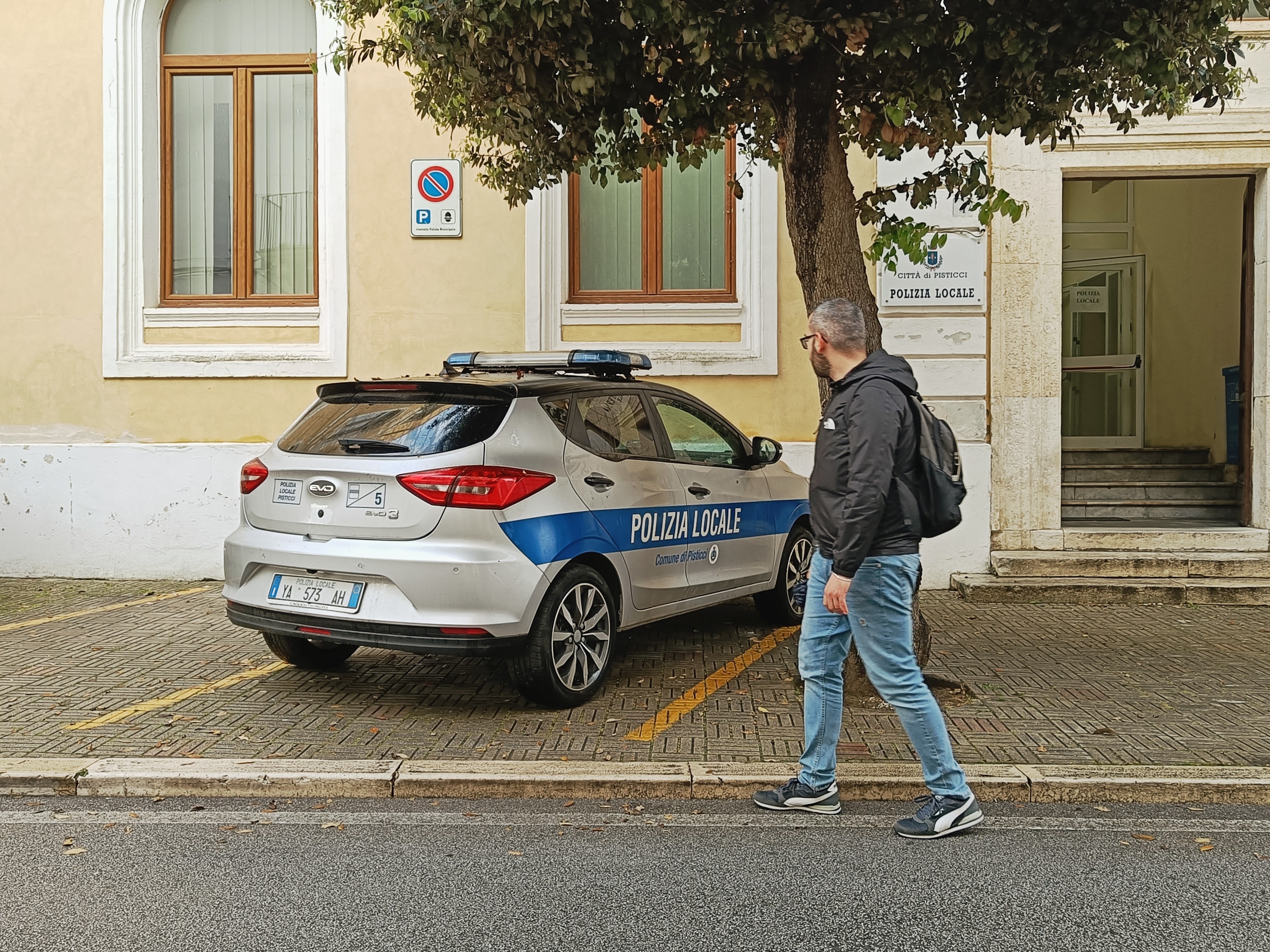
Fabrizio Lopatriello, 30, dreams of joining the local police in Pisticci
Fabrizio Lopatriello, 30, dreams of joining the local police in Pisticci
Fabrizio says he’d like to join the local police, but first has to pass the entrance exam. He carries a 700-page handbook in his backpack so he can study between shifts.
He admits to being rusty. Studying is a distant memory, he finished school 12 years ago. But he can’t waste this rare opportunity.
“My life would change drastically, joining the local police would give me stability. And a purpose,” he says.
“You can't live on just sea, sun and Aperol Spritz!”
Serena lived in Pisticci for ten months. She got a job as a receptionist in a small countryside hotel, and embraced what now people on the internet call slow living.
But it didn’t work out for her. Once again, she packed her bags and left.
“Told ya!” said her Italian friends.
Serena says: “I enjoyed it at first, but when autumn came the village began to empty out and by winter it was completely depopulated – it felt like a kind of lethargy.
“I looked in the mirror and told myself I was not ready for that life, not yet. I don’t want to stop now.
“And at some point you have to be realistic – you can't live on just sea, sun and Aperol Spritz.”
All images by Emanuela Gioia
Header image by Ovidiu, Unsplash
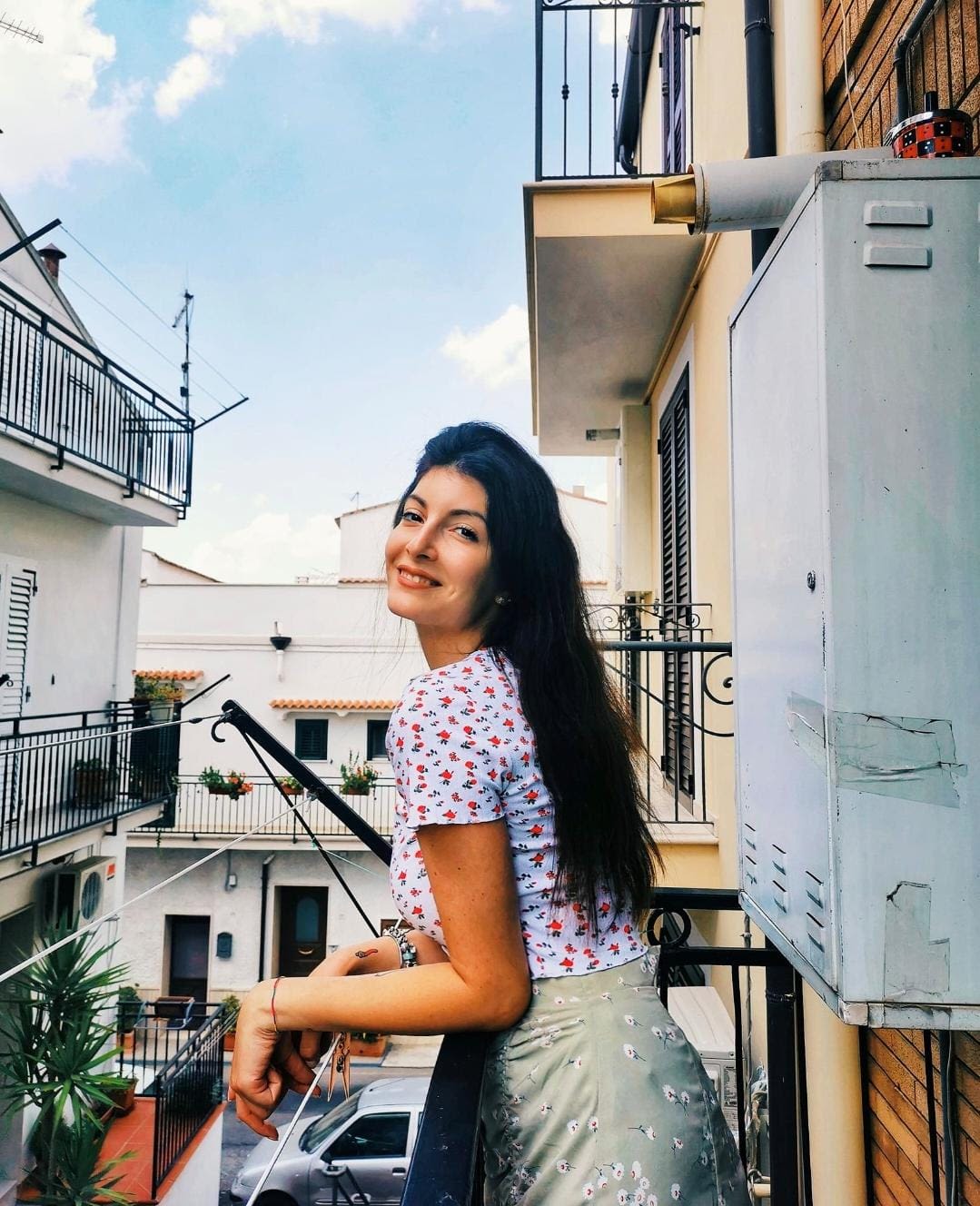
Serena Lacovara, 28, in her house in Pisticci
Serena Lacovara, 28, in her house in Pisticci